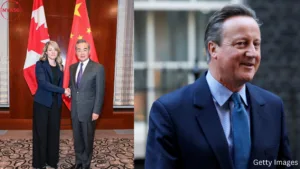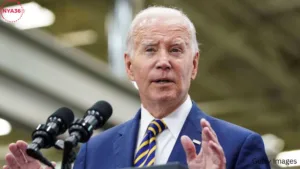The statement made by Maine State Representative John Andrews, suggesting the possibility of impeaching Maine’s Secretary of State, Shenna Bellows, due to her decision to exclude former President Donald Trump from Maine’s ballot, necessitates an examination of the intricate aspects related to election management, legal protocols, and political interactions.
Shenna Bellows, in her capacity as Maine’s Secretary of State, plays a crucial role in supervising the state’s election procedures, which includes ensuring that candidates meet the necessary requirements to be included on the ballot. Within this framework, the act of eliminating a candidate from the ballot necessitates strict adherence to legal prerequisites, guaranteeing conformity with state statutes, and evaluating eligibility standards.
The stated desire to pursue impeachment indicates a strong disagreement or unhappiness with Secretary Bellows’ decision-making process. Nevertheless, it is essential to comprehend that the exclusion of a candidate from the ballot generally results from a rigorous evaluation of legal prerequisites, electoral rules, and candidate eligibility, rather than arbitrary or partisan motives.
Impeachment, as applied to a public official like a secretary of public, is a significant constitutional procedure that necessitates precise justifications, typically linked to wrongdoing, misconduct, or breaches of the law. To substantiate allegations of misconduct or misuse of authority, a comprehensive inquiry and legal foundation supported by evidence are required.
The determination to exclude a candidate from the ballot is generally grounded in legal factors and evaluation of eligibility requirements, rather than political biases. The Secretary of State is tasked for enforcing election rules and safeguarding the integrity of the electoral process, free from any partisan biases.
The motion to impeach Secretary Bellows about the exclusion of Donald Trump from Maine’s vote prompts inquiries into the convergence of political dissensions, legal jurisdiction, and the elucidation of election statutes. It raises questions about whether the decision-making process adhered to legal procedures and whether there is substantial evidence to substantiate the accusation of wrongdoing or misconduct against the Secretary of State.
JUST IN: Maine state Rep. John Andrews signals move to impeach Maine’s Secretary of State Shenna Bellows for stripping Trump from Maine’s ballot.
She should be imprisoned too.
“I wish to impeach her on the grounds that she is barring an American citizen and 45th President of… pic.twitter.com/MwuOMcCo73
— Collin Rugg (@CollinRugg) December 29, 2023
The process of impeaching an elected official necessitates a meticulous analysis of evidence, strict attention to procedural fairness, and a definitive presentation of the legal basis for such measures. The signal to impeach Secretary Bellows, as stated, highlights the contentiousness of political discourse on election administration, particularly in cases involving prominent candidates. She should also be incarcerated.
“I want to impeach her because she is preventing an American citizen and the 45th President of the United States, who has not been convicted of any crime or impeached, from being able to appear on a Maine Republican Party ballot in March,” stated Andrews.
“This displays blatant partisanship and is inappropriate for the position of our state’s Constitutional Officers.” Here is Bellows boasting about successfully removing Joe Biden’s competitors from the ballot.
Moreover, it emphasizes the importance of transparent and responsible decision-making in election administration to sustain public trust and confidence in the electoral process. Maintaining the integrity and fairness of the democratic system requires ensuring that election officials adhere to the law and are not subjected to excessive political influences.
Ultimately, the expressed desire to initiate impeachment proceedings against Maine’s Secretary of State, Shenna Bellows, due to the decision to exclude Donald Trump from Maine’s ballot, gives rise to significant inquiries concerning the convergence of legal obligations, electoral management, and political disagreements. The process requires a comprehensive evaluation of legal justifications and evidence to support claims, highlighting the significance of upholding the integrity and neutrality of election procedures within the domain of law and established procedures.
Follow us on social media: Instagram, Threads & Twitter X @nya360_ YouTube & Facebook @nya360.





